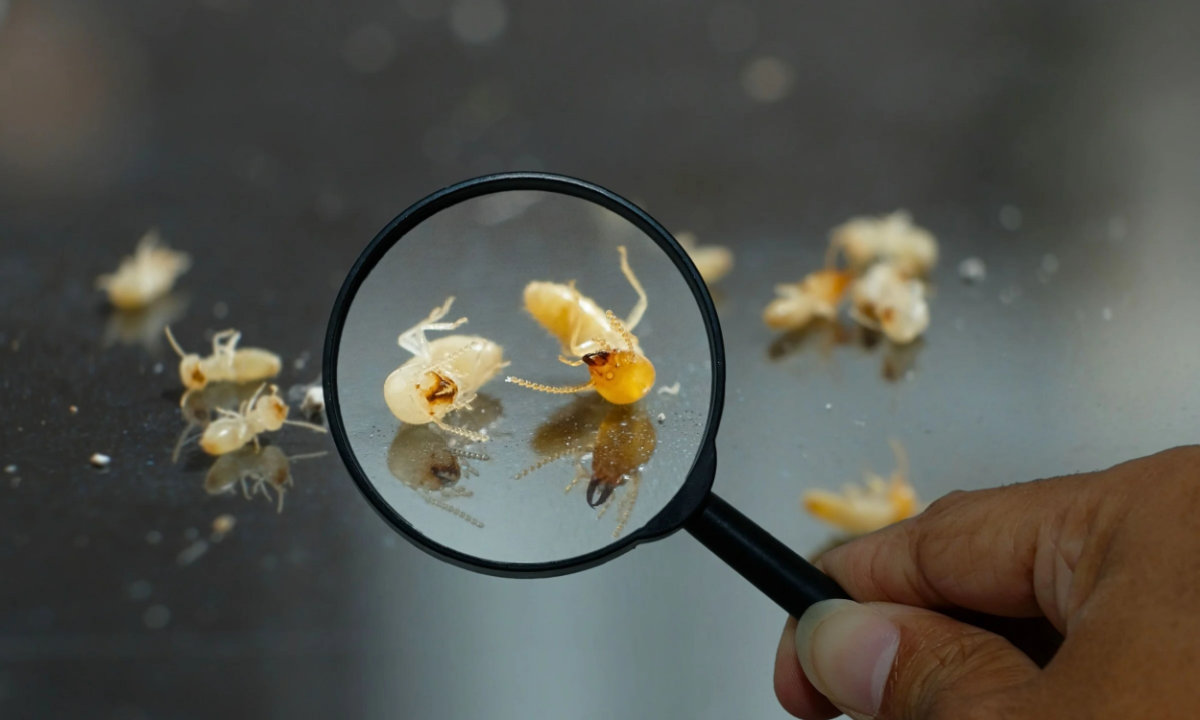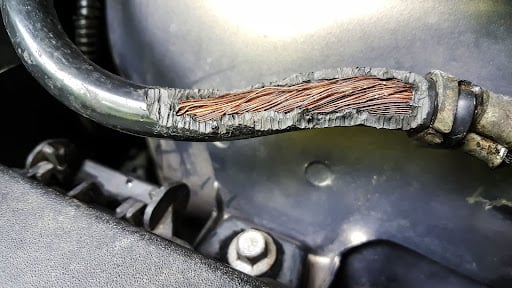Ants are some of the most common household pests, as there are over 12,000 species found across the planet that range in color and size from big black ants to tiny ants that spread quickly.
While some ants are more destructive than others, tiny ants tend to be the most difficult to contain.
These ants tend to show up on countertops, bathroom floors, and even occasionally moseying across your bedroom.
Let’s explore some reasons you may be finding tiny ants in the house and provide some tips we’ve used in the field to successfully eradicate tiny ants.
Types of Tiny Ants
Some of the most common tiny ants you may see around your home include:
- Acrobat Ants: These black ants with a red thorax get their name from acrobatically raising their abdomen above their head when disturbed.
- Odorous Ants: Commonly referred to as sugar ants, these small black ants tend to establish several sub-colonies that allow them to multiply quickly.
- Big-Headed Ants: These reddish ants with large heads tend to be fairly innocuous but may find their way into your home occasionally.
- Thief Ants: Thief ants are reddish ants that tend to steal food from other ant colonies. They have been known to contaminate food packaging.
Why Are Tiny Ants in My Home?
Ants typically make their way inside in search of food and water, and they can enter through even the tiniest of cracks and crevices. Once they are in your home, they will seek food and water from a variety of sources, including:
- Rotting fruits and vegetables
- Open garbage bags
- Greasy counter surfaces
- Leaky faucets
- Open pet food
- Unsealed food (especially sugary and sweet food)
Unfortunately, getting rid of tiny ants when they enter your home is difficult, but there are lots of effective solutions you can apply.
 How to Get Rid of Tiny Ants
How to Get Rid of Tiny Ants
Non-Toxic Solutions
There are several all-natural pest control solutions for getting rid of ants that won’t harm your family or pets. Using a mixture of water and dish soap is one popular method, as this combination will stick to ants and suffocate them to death. You can also add neem oil to this mixture for extra ant-fighting strength.
Diatomaceous earth is another commonly used method for getting rid of ants and can be applied by sprinkling the powder on areas where ants frequently hang out in your home. These products are great for stemming an existing infection, but you may have to resort to insecticides and traps if you keep finding ants in your home.
Traps
Ant traps are easy to set up and are not only good at getting rid of carpenter ants, but they can effectively kill the tiny ants in your home. These traps come in a variety of different options and can be purchased at most home improvement or drug stores.
The most effective baits, such as Terro Liquid Bait, attract ants and their workers, which then bring back the poison to their colonies, wiping them out slowly over time.
Still, it is important to note that you should place ant traps in areas that are out of reach from any small children or pets, as they can contain toxic chemicals.
Insecticides
Brands like Raid, Spectracide, and Terro make their own versions of ant insecticides that can be purchased at most home improvement stores. These sprays are remarkable in their killing efficiency, but the key is proper application.
Rather than taking matters into your own hands, it is best to enlist the help of a pest control professional to ensure the problem is taken care of safely and effectively.
Should I Call an Exterminator for Tiny Ants?
If you suspect an ant infestation in your home, you should contact a pest control professional promptly. While ants may seem small enough to take on by yourself with a DIY solution, they can be tricky to deal with and may end up causing a lot of damage to your home if not treated properly.
Worse yet, misapplying insecticides can often do more harm than good, so it’s always safest to contact a professional.
Tiny Ant Prevention Tips
While many treatments exist to eliminate tiny ants in your house, preventative pest control will always be the best solution. Here are some quick tiny ant prevention tips to follow.
- Clean your home regularly (sweep, mop, and vacuum).
- Limit eating to one room of the house.
- Store food in airtight containers.
- Caulk and seal gaps and cracks in your home to prevent ants from entering.
- Fix any leaks.
- Keep trash cans sealed and empty them when they’re full.
- Wash and dry dishes after using them.
Tiny ants may not be dangerous, but they can be annoying, especially when you find some crawling across your skin. Follow these tips to get rid of tiny ants, and reach out to a professional if you need further assistance.
FAQs
Why are tiny ants in my bathroom and kitchen?
You may notice tiny ants crawling around in two main rooms in your home: the bathroom and kitchen. Ants tend to frequent these areas due to the number of food sources available to them. They may also be attracted to the moisture in these rooms, as you might see them hanging around your sink, shower, and drains.
Where do you find out where ants are coming from?
If you’re having trouble figuring out where ants are coming from in your home, use a flashlight to look behind your refrigerator, stove, microwave, and inside your cabinets. If there is a significant ant presence in your home, you should be able to spot at least a few ants dwelling in these areas.
What causes ants in a clean home?
While having ants isn’t necessarily indicative of a dirty home, these pests are attracted to places with water and a food supply, and you could be providing them with those amenities without even realizing it. Try to get into the habit of regularly cleaning in hard-to-reach places, such as behind the refrigerator, underneath cabinets, and behind the stove, to prevent ants from entering or sticking around your home.



